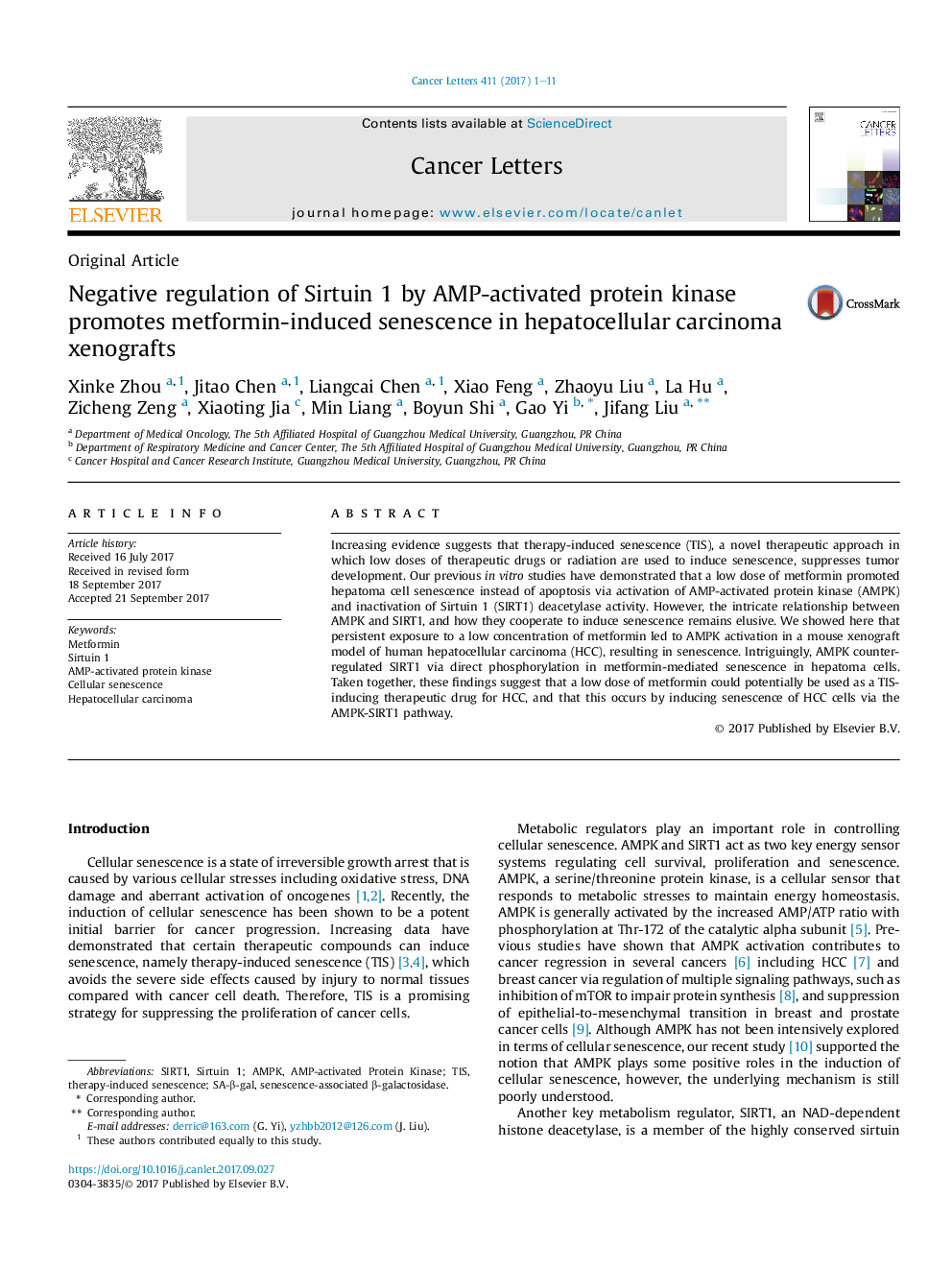| Article ID | Journal | Published Year | Pages | File Type |
|---|---|---|---|---|
| 5525130 | Cancer Letters | 2017 | 11 Pages |
â¢A low dose of metformin has an anticancer effect in HCC xenografts by inducing senescence.â¢AMPK counter-regulated SIRT1 via direct phosphorylation in metformin-mediated senescence in hepatoma cells.â¢Targeting the AMPK/SIRT1 pathway is a promising therapeutic strategy for HCC patients.
Increasing evidence suggests that therapy-induced senescence (TIS), a novel therapeutic approach in which low doses of therapeutic drugs or radiation are used to induce senescence, suppresses tumor development. Our previous in vitro studies have demonstrated that a low dose of metformin promoted hepatoma cell senescence instead of apoptosis via activation of AMP-activated protein kinase (AMPK) and inactivation of Sirtuin 1 (SIRT1) deacetylase activity. However, the intricate relationship between AMPK and SIRT1, and how they cooperate to induce senescence remains elusive. We showed here that persistent exposure to a low concentration of metformin led to AMPK activation in a mouse xenograft model of human hepatocellular carcinoma (HCC), resulting in senescence. Intriguingly, AMPK counter-regulated SIRT1 via direct phosphorylation in metformin-mediated senescence in hepatoma cells. Taken together, these findings suggest that a low dose of metformin could potentially be used as a TIS-inducing therapeutic drug for HCC, and that this occurs by inducing senescence of HCC cells via the AMPK-SIRT1 pathway.
